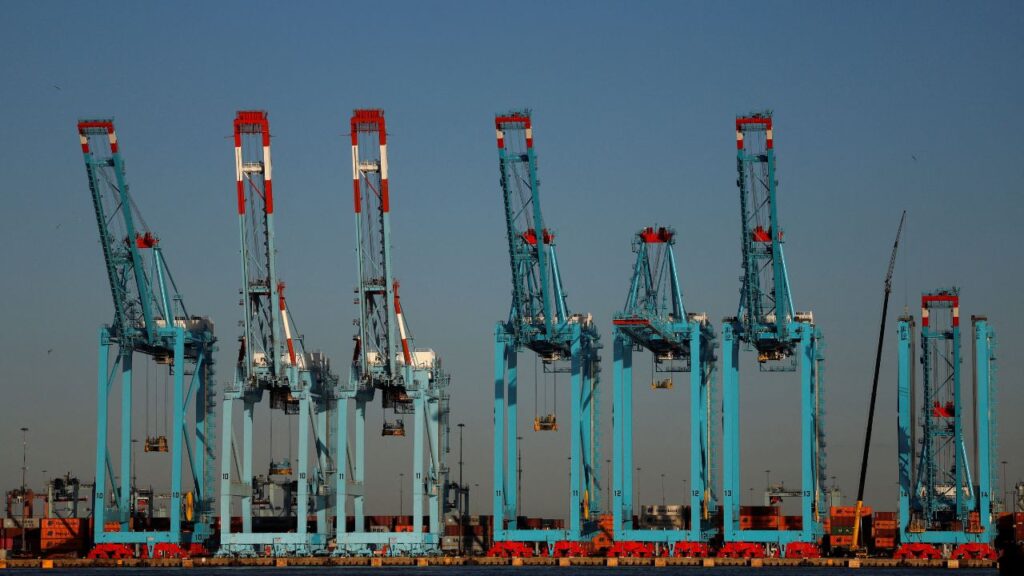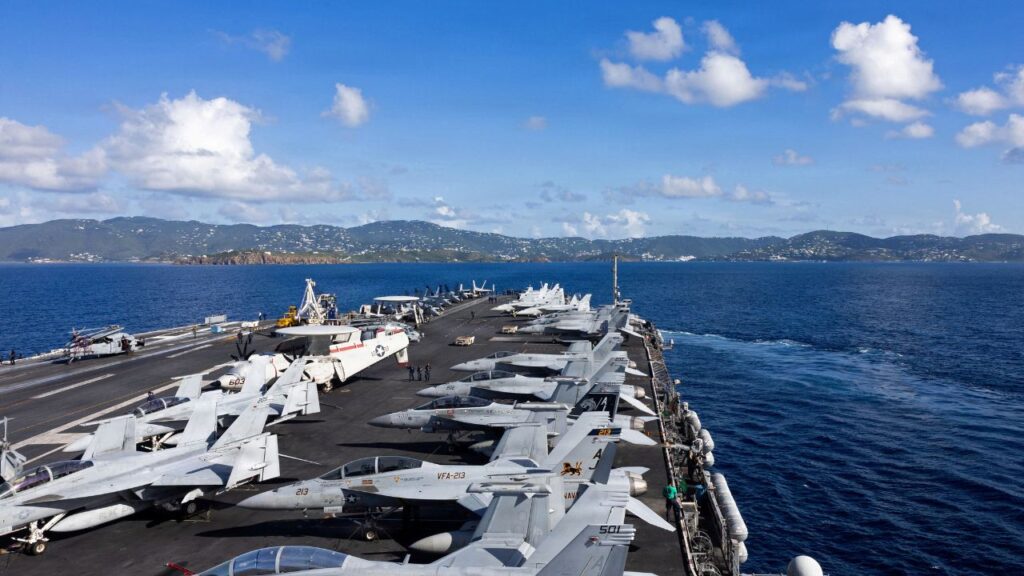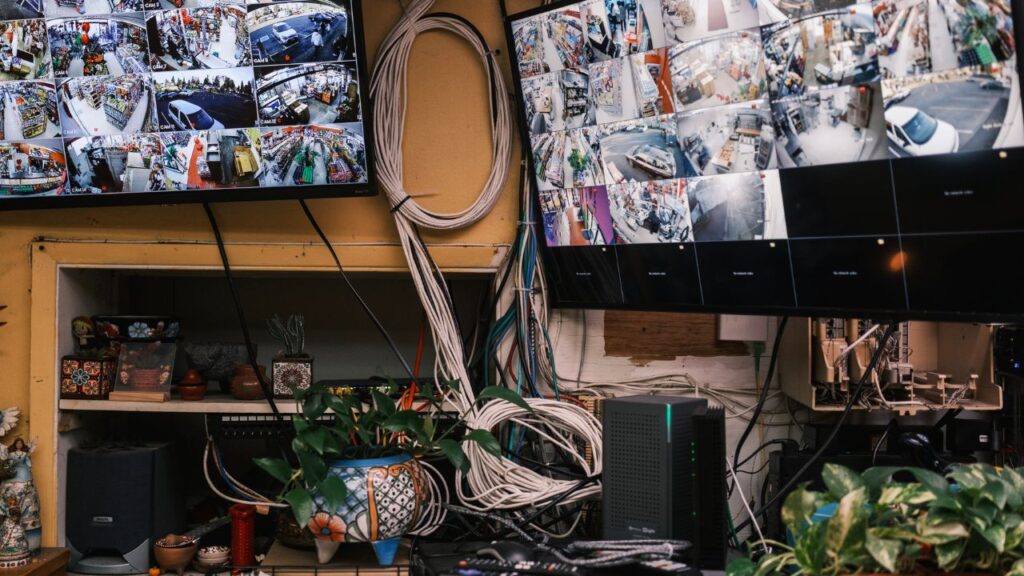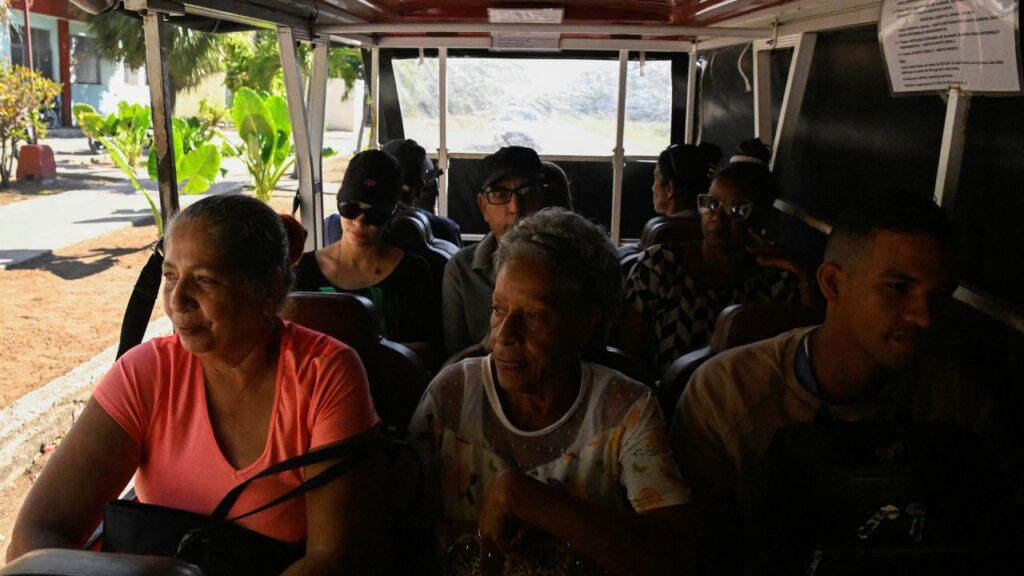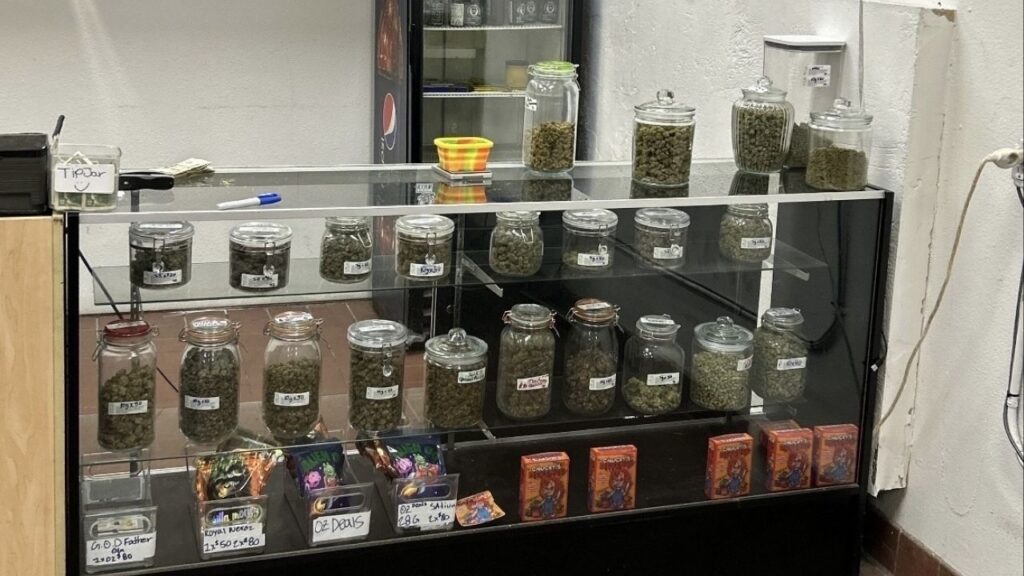The construction of the battery module at the BMW factory near San Luis Potosí, Mexico, Oct. 29, 2024. BMW is building a facility in San Luis Potosí to assemble battery modules for its electric vehicles. (Benedicte Desrus/The New York Times)

- Trump’s proposed tariffs on Mexican-made cars threaten San Luis Potosí’s booming auto industry.
- BMW’s Mexico plant would remain despite tariffs, serving markets outside the U.S., say executives.
- Mexican labor reforms under USMCA empower workers, though independent unions remain limited.
Share
|
Getting your Trinity Audio player ready...
|
SAN LUIS POTOSÍ, Mexico — Until a few years ago there was not much in this patch of desert 250 miles north of Mexico City but rattlesnakes, coyotes and cactus. Today, it is gleaming evidence of the country’s growing importance as an auto producer.
In 2019, BMW completed a vast factory complex here, near the city of San Luis Potosí. As spotless and modern as any in Bavaria, the plant builds luxury sedans for the United States, Europe, China and dozens of other markets.
San Luis Potosí is one of several Mexican cities that have become little Detroits, producing Volkswagens, Audis, Mercedes, Fords, Nissans and Chevrolets. In the first nine months of this year, Mexican factories produced more than 3 million vehicles, of which 2 million were exported to the United States, according to the Mexican Automobile Industry Association.
But Mexico’s pivotal role in the global auto industry is now at risk. President-elect Donald Trump has threatened to impose punitive tariffs of 100% or higher on cars from Mexico, which would violate a trade agreement his first administration negotiated with Canada and Mexico.
Related Story: Trump Plans Series of Executive Orders for Day 1, Susie Wiles Tells Donors
Consequences Could Be Profound
The consequences for the auto industry would be profound, affecting the price in the United States of popular models like Ford Maverick pickups, Chevrolet Equinox SUVs and several variations of Ram trucks.
Trump has said the tariffs would encourage more automotive manufacturing in the United States. And BMW executives say that the tariffs would hurt their business but that the plant in San Luis Potosí would still make financial sense for the company, because so many of the cars produced there are sold in other countries.
But the tariffs could severely disrupt suppliers, forcing them to move production between countries, which could lead to job losses and financial turmoil. The BMW factory in San Luis Potosí has 3,700 employees.
“If you torpedo the agreement, you’re going to create more unemployed Mexicans, and what are they going to do?” said William Alan Reinsch, a senior adviser at the Center for Strategic and International Studies who specializes in trade issues.
The city of San Luis Potosí, a sprawling jumble of cinder-block and brick buildings, doesn’t exactly scream “high-tech manufacturing hub.” Makeshift taquerias crowd the shoulders of the highway that leads to the BMW complex. The road is lined with corrugated metal factory buildings, many of which churn out auto parts. Like many Mexican cities, San Luis Potosí has suffered drug cartel violence.
But BMW executives said that Mexico offered a deep pool of well-educated workers and suppliers. “You don’t only have skilled workers, but you have very motivated workers,” Ilka Horstmeier, a member of BMW’s management board whose responsibilities include labor relations, said during an interview in San Luis Potosí.
Related Story: A Guide to Key Figures in Donald Trump’s Orbit
Mexico’s Lack of Worker Protection
Labor representatives in the United States, who have pushed for higher tariffs, complain that Mexico’s lack of worker protections is one reason for its appeal. Traditionally, Mexican unions have answered to management and government officials rather than workers.
The first Trump administration pursued policies that many labor experts said had hurt workers and unions. But the administration’s officials did push for provisions in the United States-Mexico-Canada trade agreement, known as the USMCA, that required Mexico to make it easier for workers to form independent unions.
Mexican labor leaders have used the reform to organize autoworkers at companies like General Motors and Goodyear, which has a large tire factory in San Luis Potosí.
“The law gives us tools to organize for better conditions,” Pablo Franco, a lawyer who represents La Liga Sindical Obrera Mexicana, an independent labor group, said in an interview at a hotel in San Luis Potosí where he and other labor representatives were meeting with Goodyear executives.
But Franco also complained that the government had not done enough to ensure that workers were aware of their rights. Workers at most companies, including BMW, are not represented by independent unions.
Related Story: Here Are the People Trump Has Picked for Key Positions So Far
USMCA to Be Reviewed in 2026
The United States, Mexico and Canada are scheduled to review the USMCA in 2026 and decide whether to extend the treaty.
“We are going to be very respectful of the commercial agreements we have with the United States and Canada,” said Walter Ángel, who oversees Mexico’s energy regulator and is involved in efforts by the government to promote electric cars. He added, “We are going to review the treaty, but we are not going to renegotiate the treaty.”
Representatives for Trump did not respond to a request for comment.
BMW executives said the factory in San Luis Potosí made business sense no matter what officials from the three countries decide. They point out that much of the plant’s output goes to Brazil, other Latin American countries and China. All of the two-door version of the BMW 2 Series coupe sold in Europe are produced in San Luis Potosí. Mexico has free-trade agreements that allow manufacturers to export their products to 50 countries at low or zero tariffs.
“Our decision on where we build plants is a long-term strategic decision made for at least 40 years,” Horstmeier said. But she added that the company much preferred open borders. “Whenever you put up trade barriers,” she said, “you harm yourself.”
–
This article originally appeared in The New York Times.
By Jack Ewing/Benedicte Desrus
c. 2024 The New York Times Company
RELATED TOPICS:
Categories

Hey Ilia, America Is Still Proud of You.






